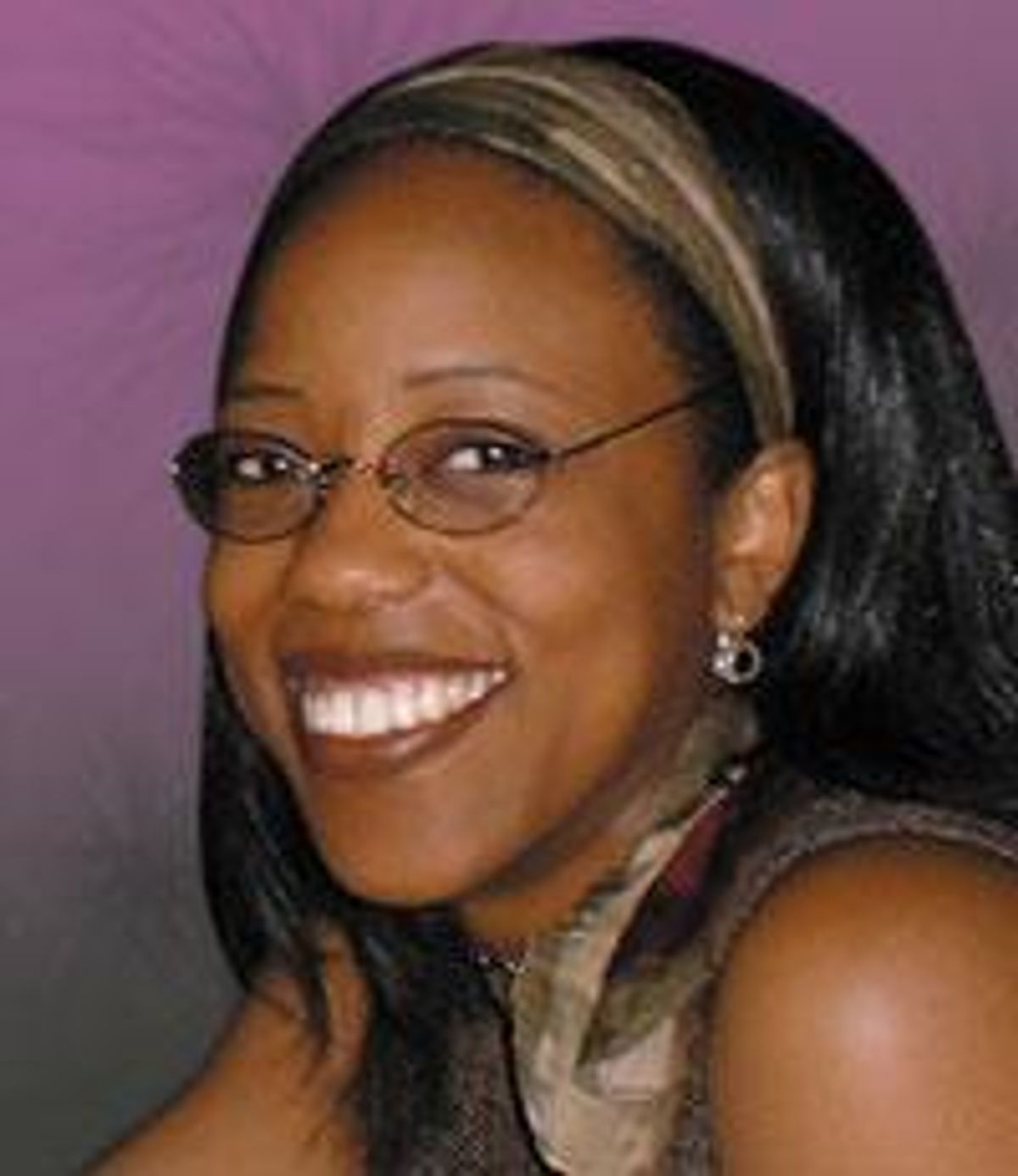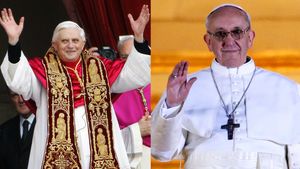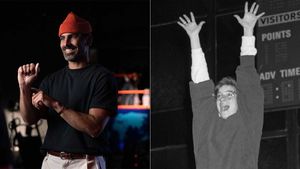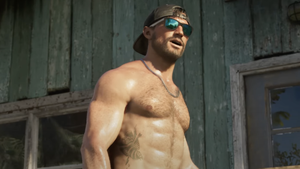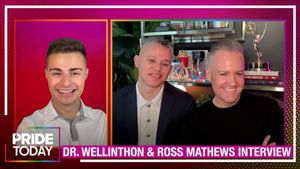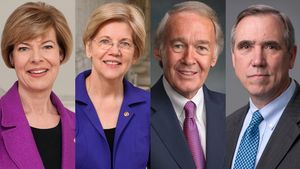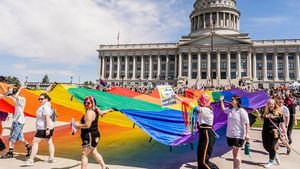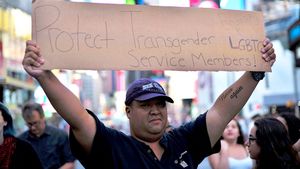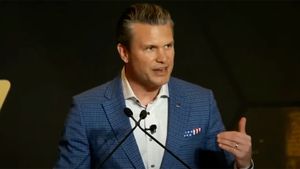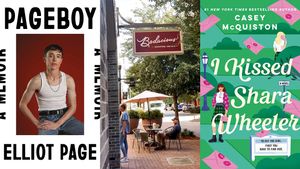Treatment GuideJust DiagnosedSex & DatingAfrican AmericanStigmaAsk the HIV DocPrEP En EspañolNewsVoicesPrint IssueVideoOut 100
CONTACTCAREER OPPORTUNITIESADVERTISE WITH USPRIVACY POLICYPRIVACY PREFERENCESTERMS OF USELEGAL NOTICE
© 2025 Pride Publishing Inc.
All Rights reserved
All Rights reserved
Scroll To Top
By continuing to use our site, you agree to our Private Policy and Terms of Use.
Veronica Ayala-Sims's desire to fight HIV among her fellow Latinos was inspired by a TV news story on the devastation of AIDS in Africa. But it wasn't until years later that she decided how to make the biggest impact'as a physician. Ayala-Sims, now 36 and a medical resident at Virginia Commonwealth University, is poised to begin her career as an HIV specialist through the support of an HIV Medicine Association Minority Clinical Fellowship. As a Latina caregiver, she says she hopes that she'll be able to set an example that inspires her peers to follow in her footsteps. What are some of the problems you see in reaching Latinos in trying to provide HIV services? These run the gamut from language barriers and understanding cultural differences in how diseases are perceived to more complex issues like immigration and socioeconomic concerns. There is no one silver bullet to fix all of them. However, one of the first things the health system can do is recognize these issues. So it isn't enough to simply offer information and services in Spanish? No. Latino is not a nationality. It's really a catchall phrase that encompasses a vast group of people from very different socio-cultural-politico-economic regions of the world'all of whom have unique experiences and needs. What is the danger in not effectively addressing these needs? You not only wind up with a higher burden of a preventable disease but also effectively say to these people that they are somehow less valued, less important. If we begin to draw lines based on language, what stops us from drawing those same lines based on skin color, gender, sexual orientation, age? How can Latinos better contribute to the HIV fight? Get involved in the health care system as educators and community liaisons or by pursuing, as I did, a medical career as a nurse, therapist, physician, or pharmacist. This not only helps address such basic issues as the ability to communicate with patients but also changes the environment in which services are provided. What message do you have for your community on National Latino AIDS Awareness Day, October 15? The message is the same I would have for any group: Get tested and know your HIV status. Knowledge is power.
From our Sponsors
Most Popular
Lexi Love comes out as HIV+ after Trump deletes federal resources
January 23 2025 11:23 AM
Ricky Martin delivers showstopping performance for 2024 World AIDS Day
December 05 2024 12:08 PM
Trump's orders prompt CDC to erase HIV resources
January 31 2025 5:29 PM
California confirms first case of even more deadly mpox strain
November 18 2024 3:02 PM
This long-term HIV survivor says testosterone therapy helped save his life.
December 16 2024 8:00 PM
Plus: Featured Video
Latest Stories
Grindr is reminding us why jockstraps are so sexy and iconic
May 02 2025 5:36 PM
Broadway's best raise over $1 million for LGBTQ+ and HIV causes
April 03 2025 7:15 PM
Season 4 of The Switch on resilience & radical self-love returns this spring
March 26 2025 12:20 PM
BREAKING NEWS: Trump admin moves to end federal HIV prevention programs
March 18 2025 6:10 PM
A camp for HIV-positive kids is for sale. Here's why its founder is celebrating
January 02 2025 12:21 PM
Decades of progress, uniting to fight HIV/AIDS
December 01 2024 12:30 PM
Climate change is disrupting access to HIV treatment
November 25 2024 11:05 AM
HRC holds 'die-in' to protest Trump health care cuts
April 28 2025 2:11 PM
Two right-wing Supreme Court justices signal they may uphold access to PrEP and more
April 21 2025 4:10 PM
The Talk Season 5 premieres this spring with HIV guidance for the newly diagnosed
March 26 2025 1:00 PM
Jess King is here to help you live your happiest, healthiest life yet
March 24 2025 4:35 PM
Gerald Garth is keeping people of color happy and healthy through trying times
March 11 2025 3:38 PM
Tyler TerMeer vows to continue to fight for health care for all
January 28 2025 3:00 PM
'RuPaul's Drag Race' star Trinity K Bonet quietly comes out trans
December 15 2024 6:27 PM
500,000 Children at Risk: PEPFAR Funding Crisis
April 08 2025 3:51 PM
Discover the power of Wellness in your life
March 26 2025 12:41 PM
Celebrating Black History Month with our annual African American issue
February 01 2025 3:28 PM
Plus nominated for 2025 GLAAD Media Award
January 22 2025 12:42 PM
AIDS Memorial Quilt displayed at White House for the first time
December 02 2024 1:21 PM
Hollywood must do better on HIV representation
December 01 2024 9:00 AM
